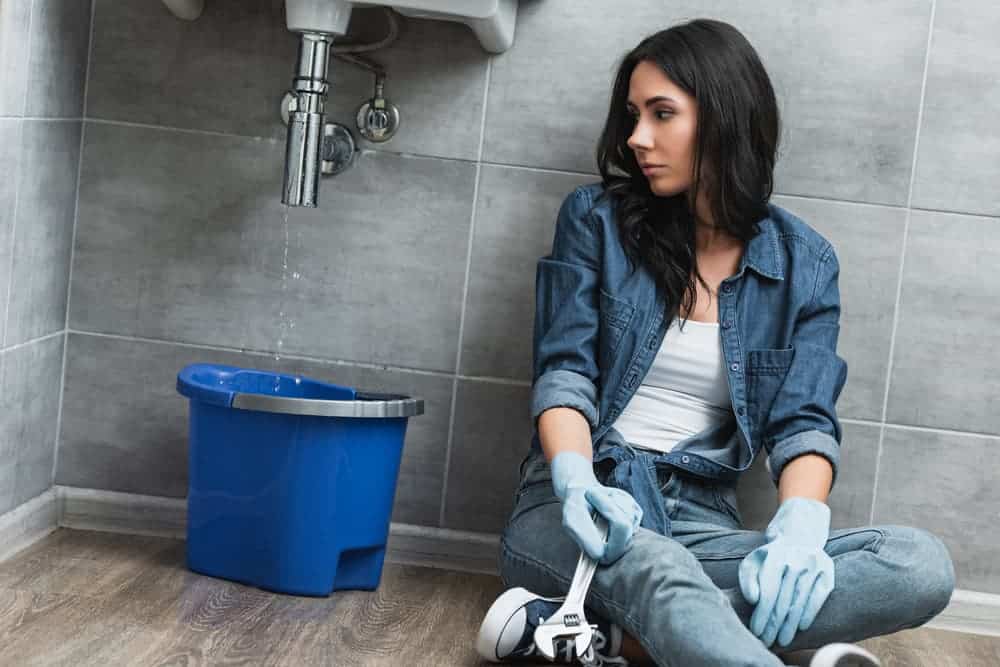No homeowner likes dealing with a plumbing problem, but being prepared is half the battle. This comprehensive guide offers a complete checklist for emergency plumbing repair. It will help you understand your home’s plumbing system, learn quick-fix strategies, and know when to call emergency plumbers, so you’re ready to handle any issue.
Understand Your Home’s Plumbing Layout
You need to first learn the layout of your plumbing system. Identify critical components, including the main water shut-off valve, water heater, sump pump, and sewage line access points. This knowledge can be critical in swiftly resolving problems before they worsen.
Routine Plumbing Health Checks
Regular inspections are critical in avoiding emergencies. Look for signs of wear and tear, listen for weird noises, and keep an eye out for moisture or mildew that might suggest a gradual leak. These checks should be conducted on a seasonal basis.
Essential Tools for Emergency Repairs
Every household should have a simple emergency plumbing repair kit, which includes:
- Wrenches and screwdrivers are used to tighten or replace fixtures.
- A cup with a flange plunger for various forms of blockages
- A hand auger for more severe clogs.
- Use epoxy putty or plumber’s tape to make temporary leak fixes.
- Replacement washers and gaskets for leaking faucets
These methods can help to control the situation until expert assistance comes.
Knowing When to Call a Professional
Some situations necessitate a professional’s intervention. If you have significant leaks, water heater problems, main line stoppages, or anything else linked to gas lines, contact a plumber emergency service right once. These difficulties may be dangerous and need specific tools and understanding.
Preventive Maintenance Strategies
Implement these suggestions to lessen the likelihood of emergencies:
- If you have hard water, use water softeners to keep minerals from building up in your pipes.
- Never dispose of oils and fats in the kitchen sink.
- Clean the shower drains on a regular basis to remove hair and debris.
- Install water leak sensors that will notify you of leaks before they become problems.
Immediate Response to Plumbing Emergencies

When a plumbing emergency strikes, respond quickly to limit damage.
Shut off the water: To stop the flow of water to the affected area, immediately switch off the main water supply.
Assess the problem: Try to find out the cause of the leak or obstruction.
Limit Damage: Move valuables and use buckets or towels to catch drips.
Documents for Insurance: Take photographs and videos of the damage to file an insurance claim.
Call for Help: Contact a reputable plumber emergency service right away.
Educate Your Household
Ensure that everyone in your home understands how to deal with a plumbing problem. Conduct frequent family walkthroughs to demonstrate to them how to cut off the water, where the emergency kit is kept, and who to contact in different situations.
Check Your Insurance Coverage
It is critical to fully understand what your homeowner’s insurance covers, particularly for water damage and plumbing repairs. Many homeowners are disappointed to learn that their policies do not cover a few types of water damage or plumbing concerns, resulting in large out-of-pocket payments.
Make it a habit to evaluate your policy periodically and inform your insurance agent of any changes in your living circumstances or house modifications that may influence your coverage. Adjusting your coverage as needed guarantees that you are not only sufficiently insured but also safeguarded against any financial constraints caused by unplanned plumbing situations. This proactive effort can help reduce dangers and provide you peace of mind, knowing that your house is adequately safeguarded.
Long-Term Care and Upgrades
Consider the following activities to ensure the life and efficiency of your plumbing system:
- Schedule professional inspections and cleanings on a yearly basis.
- Replace old pipes and fixtures with newer, more lasting alternatives.
- Consider implementing innovative solutions such as tankless water heaters or water-saving fixtures to increase performance and save wear.
Advanced Precautions
For homeowners who want to take their preventative measures to the next level, including smart home technology for water management is an ideal choice. Smart water monitors and automated shut-off systems not only identify leaks in real time but also enable remote monitoring of water consumption and trends.
These systems may send notifications directly to your smartphone if a possible leak is identified, letting you respond immediately, even if you are not at home. Installing such equipment can help you avoid catastrophic damage and preserve water, resulting in lower home plumbing repair and utility costs.
Final Insights On Emergency Plumbing Checklist
Proper planning and understanding are your best defenses against plumbing emergencies. Understanding your home’s plumbing system and adopting proactive actions can help you prevent or swiftly fix any difficulties that emerge.
Always consult an expert for specialized issues, particularly those involving your water heating system. Water Heater Solutions provides experienced guidance and service for all of your plumbing needs. Our skilled team guarantees that your system is in peak shape, offering dependability and peace of mind. Take proactive actions now to ensure a trouble-free tomorrow for your home’s plumbing. We also assist with emergency plumbing repair.





